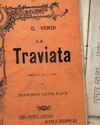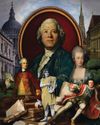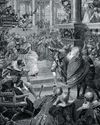
‘Upper berth – lower berth. That’s the difference between talent and genius,’ muttered George Gershwin to his friend Oscar Levant as he settled down for the night in the more comfortable lower bunk. The two musicians were on the sleeper from New York to Pittsburgh, where Gershwin was due to perform his Rhapsody in Blue and Concerto in F. The conductor Bill Daly had been held up in New York, and Levant was to help out by playing the solos while Gershwin rehearsed the orchestra.
If Oscar Levant was no genius on the level of Gershwin, he was nothing if not multi-talented. Pianist, composer, actor, writer, radio show host – he managed all those careers throughout his life. As a Gershwin player he was second only to the composer himself, and at the peak of his career, in the early 1940s, his concert fee was higher than those commanded by Vladimir Horowitz and Arthur Rubinstein – not because he was regarded as a finer pianist (he wasn’t), but because his radio show Information Please had a regular audience of 12 million in the US.
Oscar Levant was born in Pittsburgh on 27 December 1906, the youngest son of an Orthodox Jewish family. He received his first piano lessons from one of his brothers, and soon developed into a prodigy. On the day before his first lesson at high school, Paderewski was to give a recital in Pittsburgh. The 12-year-old Levant asked his new teacher if he wanted to know what the famous pianist was going to play. Instead of rattling off the pieces verbally, Levant sat at the piano and played the entire programme.
This story is from the February 2024 edition of BBC Music Magazine.
Start your 7-day Magzter GOLD free trial to access thousands of curated premium stories, and 9,000+ magazines and newspapers.
Already a subscriber ? Sign In
This story is from the February 2024 edition of BBC Music Magazine.
Start your 7-day Magzter GOLD free trial to access thousands of curated premium stories, and 9,000+ magazines and newspapers.
Already a subscriber? Sign In

A way with words
Great operas are inextricably linked with their composer but, asks Jessica Duchen, how often do we acknowledge the important role of the librettist?

THE MAGNIFICENT SEVEN Pick a theme... and name your seven favourite examples
Conductor Domingo Hindoyan nominates the best musical depictions of anger and frustration
A glittering beacon
Until its destruction in the fire of 1936, the Crystal Palace was one of the world's most exciting music venues, and its legacy still lives on today, writes Tom Service.

Christoph Willibald Gluck
Paul Riley traces the wandering existence of a cosmopolitan composer who made it his life's work and ambition to rip up opera's rulebook

The Awards are upon us once more!
Time to vote for the best recordings of the last 12 months

LEADING FROM THE FRONT
From running efficient rehearsals to learning to speak to orchestras with clarity and empathy, an array of exciting courses for conductors has bloomed in recent years, finds Clare Stevens

Kindred spirits
As their second opera takes to the stage, composer Gregory Spears and librettist Tracy K Smith talk to Charlotte Smith about their special partnership

The censors' refusal to play ball drives Verdi to despair
In the early months of 1857, Verdi had Shakespeare on his mind, and specifically King Lear.

11 Bed-Hopping Composers
Jeremy Pound lifts the covers off those notorious notesmiths who found the thrill of playing away simply too hard to resist

André Rieu Violinist, Conductor
King of the Waltz, Dutch musical impresario André Rieu has taken the world by storm with his Johann Strauss Orchestra.